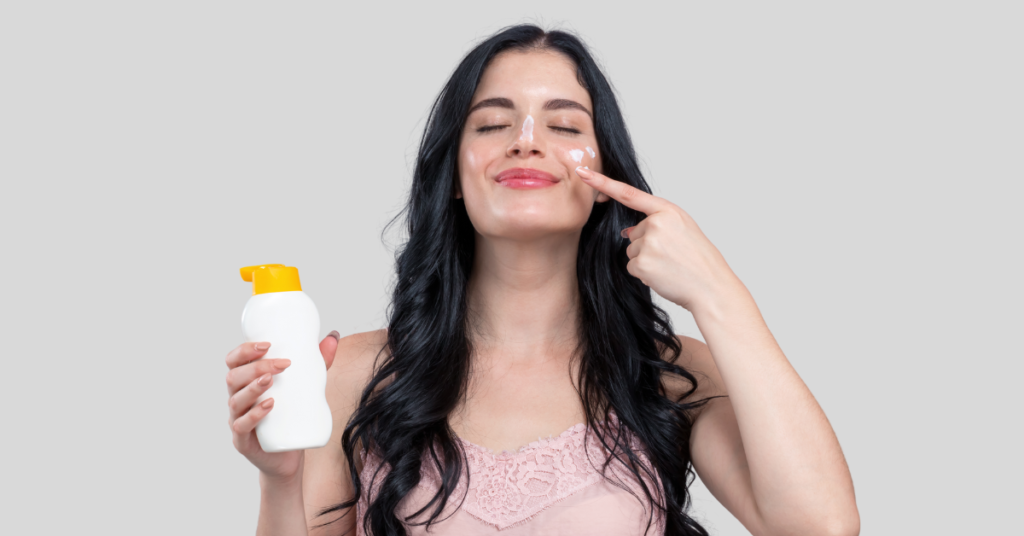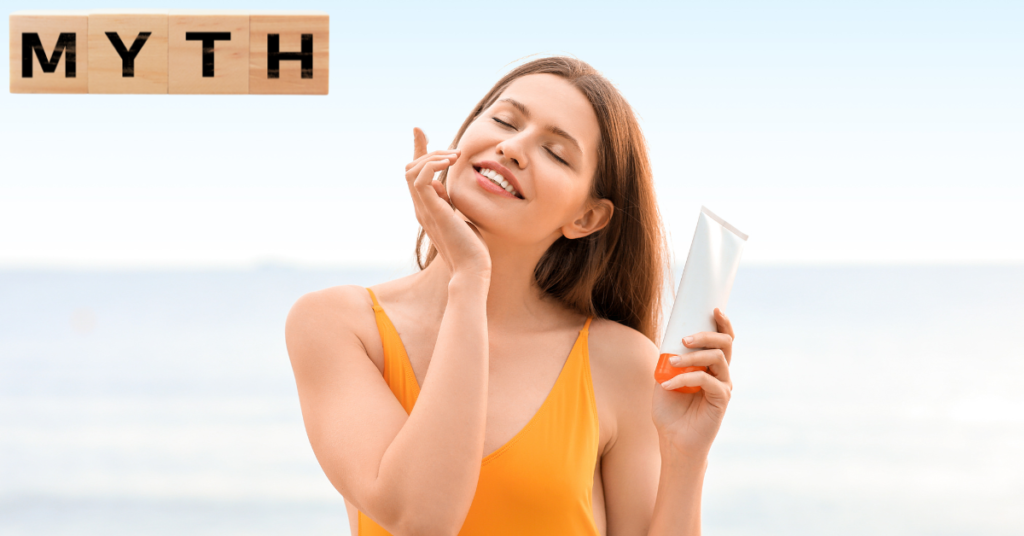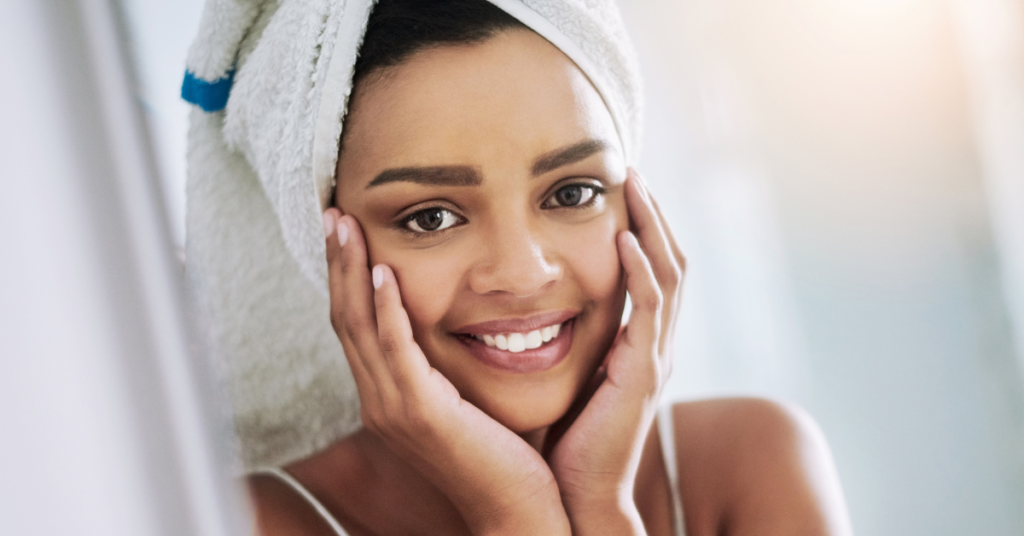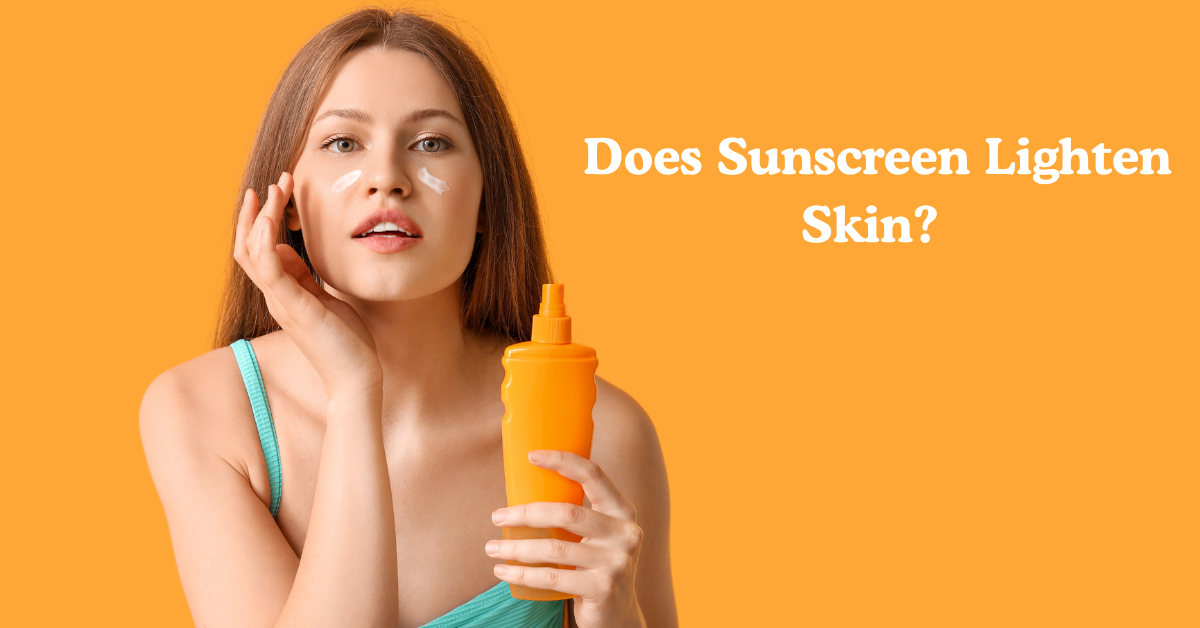Sunscreen is a must-have, in any skincare routine; however, there seems to be some uncertainty among people regarding its benefits when it comes to skin-lightening purposes. This common concern often leads to misconceptions and misunderstandings about the purpose of sunscreen Let’s delve into the role that sunscreen plays a shielding role in our skin from harmful UV rays and preventing it from getting darker. Additionally, we’ll discuss popular misconceptions about sunscreen “Does Sunscreen Lighten Skin?” and its impact, on skin complexion.
Table of Contents
Understanding Skin Tone
Skin tone is the shade of our skin that can vary from light to dark depending on melanin levels produced by melanocytes in our skin cells. Melanin is responsible, for giving our skin its color. When we’re exposed to the sun our skin gets darker as a way of protecting itself from UV radiation by producing melanin. While this natural defense mechanism helps shield our skin it can also lead to tan lines at times.
What Are UV Rays?
Ultraviolet rays (UV rays) are sun radiation that can harm skin by causing damage, to it, from the sun’s UVA and UVAB categories of radiation.
- UVA Rays: Sun rays known as UVA rays are often responsible, for causing wrinkles and premature aging as they can penetrate the skin with the potential to lead to skin cancer.
- UV Rays: From the sun lead, to sunburn, which can also increase the risk of skin cancer and primarily impact the layer of the skin.
When our skin is exposed to the sun without protection, from UV rays it can result in darkening of the skin which may lead to tanning and even burning. This is an attempt by our bodies to defend themselves.
Does sunscreen lighten skin?

Does sunscreen lighten skin? No, sunscreen does not lighten our skin; instead, it helps protect it from getting darker by preventing spots and blemishes while maintaining its tone.
This is the way it works.
- Prevents Further Darkening: Sunscreen helps prevent the skin from producing melanin when it encounters UV rays to avoid darkening when exposed to the sun.
- Maintains Even Skin Tone: Achieving a skin tone is a process that comes from safeguarding your skin, against the sun’s harmful rays and avoiding sunburn and skin damage over time.
- Protects Against Hyperpigmentation: Using daily can prevent hyperpigmentation which is the darkening of skin, in certain areas caused by factors, like sun exposure or hormonal changes.
- Supports Overall Skin Health: Using sunscreen is important, for maintaining the health of your skin as it protects against dangers, like skin cancer and premature aging. Healthy skin tends to have a uniform appearance of well-being.
Why Skin Might Appear Lighter with Sunscreen Use
When people apply sunscreen regularly and shield their skin from UV rays over time in a manner they might observe a brightening of their skin tone due, to the sunscreen’s ability to protect against darkening caused by sun exposure while keeping the natural color of the skin unchanged. Sunscreen also aids in preventing hyperpigmentation problems such, as sunspots and dark spots that could result in an uneven skin tone.
Moreover, it also aids in reducing inflammation triggered by sun exposure that might alter the skin color temporarily Protecting the skin from UV damage not only contributes to skin health but also results in a more refined texture and a radiant complexion.
Common Myths About Sunscreen and Skin Lightening

There are numerous misconceptions regarding sunscreen that people fall for. Let’s examine a few:
◈ Myth 1: Wearing sunscreen lightens your skin.
Reality:
This is untrue. Sunscreen keeps your skin from getting darker, but it doesn’t alter its tone.
◈ Myth 2: Sunscreen is only necessary on bright days.
Reality:
It’s not true that you can skip sunscreen on days; it’s important to apply it to protect your skin from UV rays regardless of the weather conditions.
◈ Myth 3: If you have dark skin, you don’t need sunscreen.
Reality:
People of all skin tones should apply sunscreen to protect their skin from the sun’s effects even if darker skin may not burn quickly as lighter skin tones.
◈ Myth 4: If your makeup has SPF, you don’t need to wear sunscreen.
Reality:
While certain makeup items contain SPF protection to shield the skin, from the sun’s rays to some extent; however it is often inadequate for protection against UV rays. For protection, against sunlight exposure it is advisable to apply sunscreen before putting on makeup.
Best Practices for Using Sunscreen
Here are a few easy pointers for applying sunscreen efficiently:
◈ Use Enough Sunscreen: Make sure to apply an amount of sunscreen, on all exposed areas of your skin when you’re out under the sun aiming for one ounce (equivalent, to a shot glass full ) to cover your whole body adequately.
◈ Apply It 30 Minutes Before Going Out: Apply the 30 minutes before heading out so your skin can absorb it properly for protection when you’re outside.
◈ Reapply Every Two Hours: Remember to put on sunscreen every two hours especially if you are sweating or swimming and don’t forget to reapply it after drying off with a towel. .
◈ Choose Broad-Spectrum Sunscreen: Opt for a broad-spectrum sunscreen as it protects by shielding against both UVA and UV levels of radiation.
◈ Check the Expiration Date: Don’t forget to check the expiration date on your sunscreen as its effectiveness diminishes over time! Always remember to check the expiration date before applying it to your skin.
◈ Store It Properly: Make sure to store your sunscreen in a dry place, from direct sunlight as exposure, to high temperatures can break down its ingredients and reduce its effectiveness.
Tips for Brighter Skin

Besides using sunscreen, there are other things you can do to help keep your skin looking bright:
- Stay Hydrated: Remember to keep your skin hydrated by drinking plenty of water throughout the day for a glow.
- Eat Fruits and Vegetables: Incorporating fruits and vegetables, like oranges, carrots, and spinach into your diet can help maintain radiant skin by providing vitamins and antioxidants that protect the skin.
- Moisturize: Keep your skin smooth and soft by applying a moisturizer and it prevents dryness.
- Exfoliate: By removing dead skin cells, exfoliation helps your skin appear more radiant. Use mild scrubs or chemical exfoliants, but be cautious not to use too much of either. Usually, once or twice a week is plenty.
- Avoid Smoking and Excessive Alcohol: Smoking and excessive alcohol consumption might harm your skin and make it appear lifeless. For better skin, try to stay away from these routines.
- Get Enough Sleep: Sleep is vital for general health, including your skin. To help your skin heal and look its best, try to get between seven and nine hours of sleep each night.
- Manage Stress: Try to find ways to unwind because stress can have an impact on your skin. Stress-relieving exercises include yoga, meditation, and even going for a stroll.
Conclusion
Finally, sunscreen plays a critical role in skincare. It maintains your skin healthy and helps keep it from getting darker, but it doesn’t lighten your skin. Sunscreen helps to prevent hyperpigmentation and maintain an even skin tone by obstructing damaging UV radiation.
It’s imperative to apply sunscreen according to recommended procedures each day. A brighter complexion can also be achieved by taking good care of your skin through proper hydration, a balanced diet, and healthy behaviors.
Recall that one of the best things you can do for your health and appearance is to protect your skin. You may enjoy the sun safely and maintain the beauty of your skin by including sunscreen in your daily routine!
Related Post: Does Sunscreen Make You Dark? Myths, Facts, & Tips Revealed!
FAQS
Does sunscreen reduce skin darkening?
Yes, by avoiding sunburn and hyperpigmentation and blocking harmful UV rays, sunscreen helps minimize skin discoloration. Over time, regular application can reduce the effects of tanning and black spots.
Does sunscreen make your skin glow?
Sunscreen helps keep skin radiant by shielding it from harm, maintaining its natural brightness, and minimizing the dulling effects of sun exposure.
Can sunscreen remove tan?
Sunscreen protects the skin from UV rays, which helps prevent additional tanning but cannot remove an already-developed tan. You’ll need time and mild skincare solutions that encourage skin renewal in order to fade a tan.
Can sunscreen improve skin?
Yes, sunscreen keeps skin healthy overall by shielding it from UV rays, and preventing wrinkles, hyperpigmentation, and premature aging.

